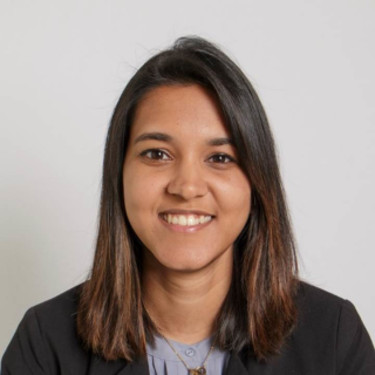I was raised with the sentiment that there are two topics that are rude to discuss with people you are not close with: money and politics. While I sat in didactics one recent afternoon, I opened my phone to a passionate email exchange discussing both. The thread revolved around the implications of purchasing clinic staff appreciation lunches from a restaurant whose owners espoused controversial beliefs. Opinions on the matter ranged widely: some argued that supporting the restaurant could directly harm our patients and their care, others pointed out that it was the staff’s favorite place to eat, and still others declared that politics should stay out of lunch altogether. I could see the situation from many of these perspectives, and I even wondered, “How much does it matter?”
As an early-career family medicine doctor, I’ve begun to understand that it matters more than we often realize. I have a front-row seat to the daily health consequences of elections, laws, and political rhetoric. Whether my patients can access and afford care is closely tied to local, state, and federal policy. Health care legislation impacts every facet of medical practice, from treatment guidelines to clinical decision-making. (That’s not to say that patient care should be provided or withheld based on our personal beliefs; we should treat all our patients equally, no matter what we think of their stated beliefs and vice-versa.)
Further, health policy, like Medicaid expansion, directly influences patient outcomes by determining who receives care and what treatments are covered. Political decisions during public health emergencies also affect how we practice medicine. The political response to COVID-19, which included enforcing mask mandates and allocating for vaccine distribution, will shape and dictate the nature of future public health policy. Even issues that appear disconnected from medicine can affect my patients, from climate change to immigration law. Simply put: Whether or not you believe politics should be left out of practicing medicine, politics and medicine are inextricably linked.
As trusted health figures navigating an inherently political system, physicians can be drawn into the resulting social and political debates. This challenges the traditional notion of a politically neutral clinician, and when physicians voice political beliefs, the potential for repercussions is real. Advocating for politically sensitive topics — like gun laws or reproductive rights — can result in public backlash, safety threats, and legal and financial consequences. As a resident physician still in training, I am particularly aware that my publicly expressed opinions reflect upon my program, my employment, and my ability to get a full medical license. These consequences create an ongoing tension between professional obligations and personal beliefs, and make it easy to understand why a physician may feel pressured into silence.
The combined pressure of representing the field of medicine, our employers, and our individual identities and communities is daunting; yet it also bestows a lot of power and responsibility upon physicians. Despite the challenges it poses to our limited available time, physician advocacy remains critical. Engaging in advocacy initiatives allows physicians to utilize their position to amplify health issues that might otherwise go unnoticed by policymakers. Advocacy can take many forms, including but not limited to: attending protests, writing policy briefs, providing patients with community resources, and voting. These efforts demonstrate the power of physician voices to drive systemic change, as seen in initiatives like resident unionization and collective bargaining, which have led to tangible improvements in salaries, workplace conditions, and employee protections.
In an effort to recognize the importance of these skills, medical education is evolving to better prepare future physicians for advocacy work. In 2020, 77% of MD-granting institutions reported offering formal training in policy or advocacy, according to the AAMC. Although many of these training programs are optional, their growing presence reflects a shift in the medical profession’s priorities, emphasizing the importance of equipping physicians to engage more effectively in shaping health policy. From understanding legislative processes to participating in organized advocacy days, medical trainees are learning how to use their voices to drive change. These experiences not only prepare future physicians to navigate complex systems but also empower them to advocate for their patients and communities on a larger scale.
By focusing solely on clinical care and ignoring the political structures that shape it, physicians risk addressing symptoms while leaving the root causes unchecked — like repairing a roof while ignoring the damaged walls. Even something seemingly trivial like the debate over a lunch order illustrates how our roles as physicians intertwine with the world around us. It can feel overwhelming to recognize that every decision we make — from choosing where to buy lunch to engaging in broader societal debates — carries so much weight. Yet, rather than striving for neutrality, I challenge current and future physicians: Embrace the complex responsibilities that extend beyond the exam room.
Do you have experience as a physician-advocate? Share in the comments!
Dr. Brinda Sarathy is a family medicine resident at the University of Colorado in Denver, Colorado. Within medicine, she is passionate about gender-affirming care and reproductive health access. In her free time, she enjoys running, hiking, listening to obscure podcasts, and cooking new recipes. Dr. Sarathy is a 2024–2025 Doximity Op-Med Fellow.
Illustration by Diana Connolly







